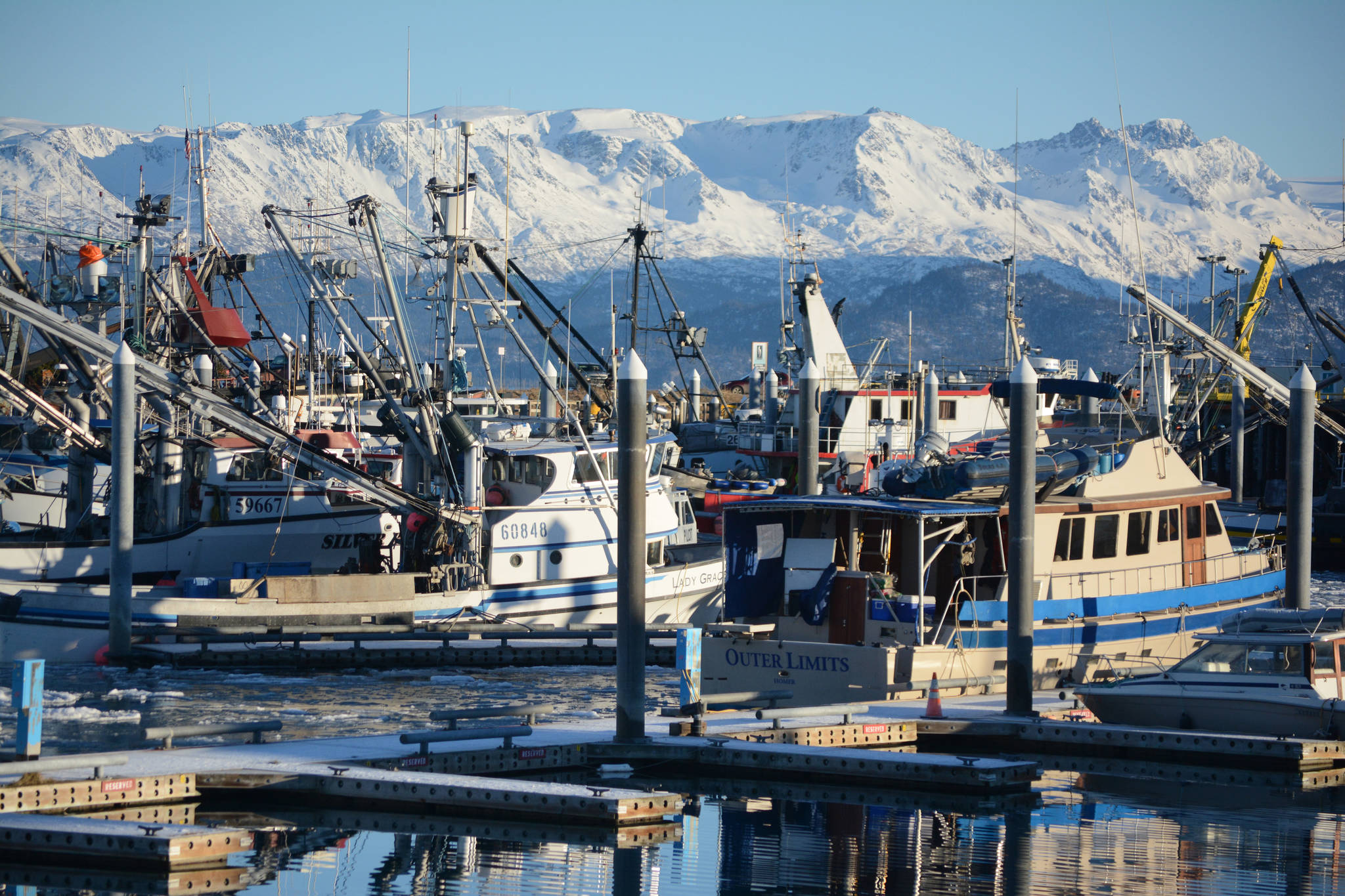The 2021 halibut season wrapped up this week with sparse deliveries, lower prices than a few weeks ago and an extended cold snap and windy weather.
The commercial fleet landed 92% of the 18.6 million pound quota, with Area 4A, Eastern Aleutians, and 4B, Western Aleutians, leaving the most fish in the water, catching 86% and 63% of their allocations respectively.
The price dropped to around $5.30 per pound in Homer, compared to a high of $8 per pound for fish over 40 pounds in early October, although one small, independent buyer paid $7 per pound for one last load of the season.
The future of the fishery is looking slightly brighter, according to information provided at the interim meeting of the International Pacific Halibut Commission last week.
A year-class of fish that researchers have been watching since 2012 is recruiting into the fishery and looks stronger than expected, according to lead researcher Dr. Ian Stewart.
He added that younger fish seem to be dominating the biomass, which is a change from previous years.
“This is the opposite of what we’ve seen over the last several years,” Stewart said. “The survey and the fishery have been accessing fish that were growing older. That’s now reversed for this year, reflecting this change from older fish to younger fish moving into the stock.”
The setline survey this summer showed that the number of fish per unit increased by 17% over last year, rather than the decline in NPUE seen over the past four years.
The weight per unit of effort for legal-sized fish also increased by 4%.
Not all areas saw the increases. Stewart noted that the distribution seems to have shifted back to the central and western Gulf of Alaska which saw a 28% increase.
“We started to see an increase in 2020, but it’s become much more pronounced leading up to a proportion of the stock in Region 3 that is larger than anything we’ve seen in almost a decade, and particularly in the Western Central Gulf,” he said.
However, Area 2C, Southeast Alaska, saw a slight decline, and the Bering Sea showed what Stewart called “a very strong decrease in the number of fish which was not evident in last year’s result.”
That news comes as the North Pacific Fisheries Management Council is meeting this week to vote on a proposed rule to put the Bering Sea trawl fleet on abundance-based caps on halibut bycatch instead of a static cap that seems to be more of a suggestion for managers. The trawl fishery has never been closed due to exceeding the halibut bycatch quota in spite of going past the upper limit on a regular basis.
The council is weighted heavily with trawl interests, including one council member who is vice president of a trawl company that donated $100,000 to Gov. Mike Dunleavy’s campaign just days before the election. Dunleavy then forwarded her name to the Secretary of Commerce who appointed her to the council.
The council has received hundreds of public comments on the proposal, including a letter signed by 25 legislators from both parties written by Representatives Sarah Vance, R-Homer, and Jonathan Kreiss-Tomkins, D-Sitka, strongly urging the council to adopt the measure, stating, “never before have Alaskans from all regions come together to support council action to protect our fisheries and communities in this way. Alaska is famous for its bountiful resources and sustainable stewardship of abundant fisheries.
“Meaningful abundance-based management creates badly needed conservation incentives. These incentives are lost entirely under the current non-constraining prohibited species catch (PSC) limits because the Amendment 80 (trawl) fleet feels no effects at times of low abundance—and has no incentive to reduce halibut mortality or take steps to conserve halibut—because the impacts of low abundance are felt entirely on halibut commercial, subsistence and sport fishermen. Equitable management of halibut bycatch ultimately fulfills social and ecosystem priorities that impact our fishery for generations.”
The IPHC will hold its annual meeting to set quotas Jan. 24-28. Meeting information can be found at https://iphc.int/iphc-meetings.
Cristy Fry can be reached at realist468@gmail.com



